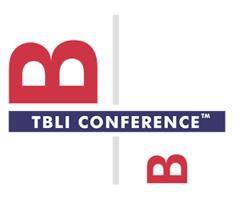Renewable energy investments could be at risk from overlooking harms to local communities.
Managing these impacts is key to secure a fast and fair transition to a low-carbon economy, and safeguard financial returns, according to analysis by Business & Human Rights Resource Centre, Transform Finance and Sonen Capital. This briefing sets out why investors in renewable energy should take action to ensure projects respect local communities’ rights and provides tools to use in their investment relationships.
The Paris Climate Agreement and the UN Sustainable Development Goals have clearly signaled the future of energy is in renewables. This shift has opened up a host of opportunities for investors, but also serious risks. Business & Human Rights Resource Centre has received 115 concerns of harms to local communities linked to renewable projects since 2005 including on land grabs, displacement of indigenous peoples, violence and killings. 94 out of those concerns were raised since 2010.
“The time is now for investors to take steps and engage with renewable energy companies and projects in their portfolios to ensure respect for human rights. The majority of renewable energy companies do not yet have rigorous human rights safeguards in place – only 5 out of 50 of wind and hydropower companies refer to respecting indigenous peoples’ internationally recognised right to free, prior & informed consent,” said Phil Bloomer, Executive Director of Business & Human Rights Resource Centre.
The briefing shows that investors must be vigilant to the way in which renewable energy projects are implemented, as they can harm communities in which they operate. These harms can result in costly delays, legal costs, and reputational risks. Through case studies, examples and practical recommendations, the briefing helps investors shape a new energy system that considers human rights and community engagement as the cornerstone for sustainable energy development.
“As long-term investors, we believe that the analysis of human rights in the renewable energy context set forth in this briefing is fundamental. We need to foster more community engagement to ensure that the transition to renewable energy truly benefits communities and does not create undue risk for investors. This view of investment as management of financial, human and environmental capital underpins CalPERS’ beliefs,” said Anne Simpson, Investment Director, Sustainability, of the California Public Employees’ Retirement System (CalPERS), with $300 billion assets under management.
With input from over 30 experts and investors including Principles for Responsible Investment and UNEP Finance Initiative, the briefing demonstrates how integrating human rights considerations early on in the decision-making process, while prioritizing building strong and equitable relationships based on engagement with affected communities, can reduce the likelihood of conflicts that undermine a project’s success. These practices also help ensure that all stakeholders benefit from the investment, from financial, environmental and social perspectives.
The briefing is intended for any investor holding or considering investments in renewable energy projects, whether through direct or indirect ownership.
Written by: Evan Steiner
Original Article: Transform Finance




































